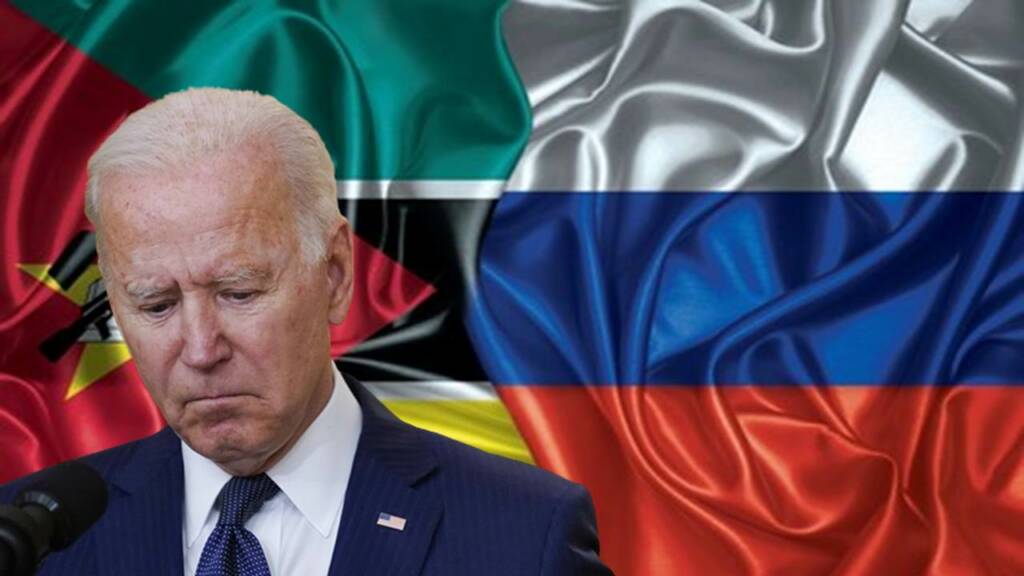The rising importance of Mozambique in the global scale cannot be denied. Mozambique has been among the fastest growing economies in sub-Saharan Africa over the last 20 years, with average annual real GDP growth of 7.4 percent. Various indicators of human development progress—such as GDP per capita, poverty headcount, and life expectancy—have significantly improved. This strong performance was aided by the determined implementation of credible macroeconomic policies and structural reforms, a favorable external environment, donor support, and in recent years, the discovery and exploitation of natural resources.
Scramble for Mozambique resources:
Africa in general and Mozambique in particular are part of a burgeoning conflict between the United States and China. Mozambique was one of five African countries invited to the US-convened Minerals Security Partnership (MSP), which US Secretary of State Antony Blinken launched on the fringes of the United Nations General Assembly High-Level Week on September 22 in New York. The MSP is part of the United States’ effort to gain control of essential minerals for the renewable energy transition, many of which are now mostly produced in China. Blinken specifically mentioned the graphite mine in Balama, Mozambique.
“Graphite from this mine will soon be sent for further processing to a plant in Louisiana, where it will create more jobs and where it will provide graphite used for batteries by American electric vehicle companies,” he said in a recent interview.
Also Read: EU sends its agent to Mozambique in a last-ditch attempt to secure gas supplies
US hopes get dashed:
However, everything is not in order for the United States. Workers at the Balama graphite mine, as well as 100 workers at the adjoining Ancuabe graphite mine were on strike on the same day Blinken revealed America’s intentions to exploit resources in Mozambique. Work was halted at both mines. Miners claim they are paid less than the $162 monthly mining minimum pay. Local workers first went on strike in Balama, demanding wage parity with staff brought in from outside, as well as perks such as health insurance. There are also concerns that if more people are relocated by the new graphite mines, an uprising will be fostered, as it was with those displaced by the ruby mines.
Institutional backing to the anti-US sentiments:
Don’t be fooled; it’s entirely possible that the recent anti-US backlash in Mozambique was sanctioned by the Maputo government. You see, recently, the United States and Mozambique have broken ties. The US attempted to warn African countries not to engage with US-sanctioned Russia. America attempted to divide several African nations’ foreign policies by telling them who to buy from and who not to buy oil and other critical commodities from. However, many African countries, notably Mozambique, refused to submit to American diktats. African governments emphasised their independence in foreign policy decisions. Furthermore, Mozambique’s Minister of Mineral Resources and Energy stated that the government may purchase Russian oil in Roubles.
“I am sure that we will study and verify the feasibility of this offer [from Russia]. If it is viable, for sure [Russian oil] will be acquired” in roubles, Carlos Zacarias said.
To be certain, this is only a minor component of the wider picture of growing camaraderie between Russia and Mozambique. The southern African country abstained on two resolutions voted on by the United Nations General Assembly, one condemning Russia for the humanitarian situation in Ukraine caused by the war and the other suspending Moscow from the Human Rights Council.
Furthermore, Moscow has accelerated the process of forging stronger economic and security relations with Mozambique.
Valentina Matviyenko, the Russian Federation’s ‘Federation Council’ Speaker, led a delegation of prominent and experienced Russian senators on a reciprocal visit to Maputo, Mozambique, a few months ago. The group met with the Legislative Assembly, the Russia-Mozambique Parliamentary Friendship League, and ultimately with Mozambique’s President, Filipe Nyusi. The discussions centred on Russia-Ukraine ties as well as key topics of Russia-Mozambique bilateral relations.
However, in the context of bilateral economic collaboration, the Mozambican Head of State expressed satisfaction with Russia’s willingness to strengthen bilateral cooperation with Mozambique, particularly in the economic and social areas.
During meetings with Mozambican leader Filipe Nyusi, Speaker Valentina Matviyenko spoke to the need to improve commerce between Russia and Mozambique, which amounted to around US$109 million in the previous year, and assessed trade as being considerably below its potential. Matvienko also encouraged the Mozambican government to designate priority areas for expanding cooperation.
All in all, the fantasy of the Biden administration to fill its coffers by exploiting Mozambique is in shreds. For long, Africans have put up with the discriminatory treatment they receive from Western countries. African political and economic systems have always been annexes to global political and economic systems, lagging behind in global socioeconomic and political advancement for ages. However, they are now retaliating against the condescending and paternalistic attitude of Western nations. African countries are aware of the value of self-determinism and self-sufficiency in the cotemporary politico-economic environment. They will form coalitions based on their national interests. American neocolonialist dreams of puppeteering Africa would remain a delusion.
https://www.youtube.com/watch?v=FJees2QExc4&t=57s
